
Vol. XXIII, No. 3, March 2023
- Editor's corner
- 2023 forecast for the attractions industry
- Esports isn't living up to its hype
- The weekday daytime leisure economy
- How the young adult market will shift
- Pistachio is a recent flavor trend
- For young adults, owning a VR headset is as rare today as it was in 2018
- Have we returned to pre-pandemic normalcy?
- Long waits reduce revenues and profits
- Store vacancies open opportunities
- Covid-related popularity of pickleball may be faltering
- Why LBE models need to be different today
- Competitive socializing with soccer
- It's all about perceived value, not just price
- Births down not totally bad news
- Announcing Agritourism Today
- Surge pricing comes to bowling
Have we returned to pre-pandemic normalcy?
Over three years since the start of the Covid-19 pandemic (March 11, 2020), nearly one-half of adults (49%) say the pandemic is over in the U.S.
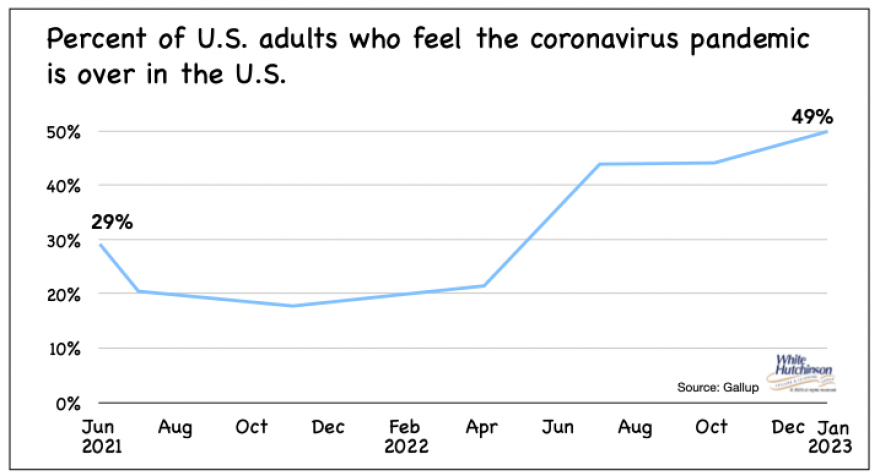
As with many attitudes related to the pandemic, Americans' views diverge sharply and most significantly by partisanship. 75% of Republicans say it is over, 55% of Independents, and only 28% of Democrats.
One-quarter of adults are still very/somewhat worried they will still catch the coronavirus
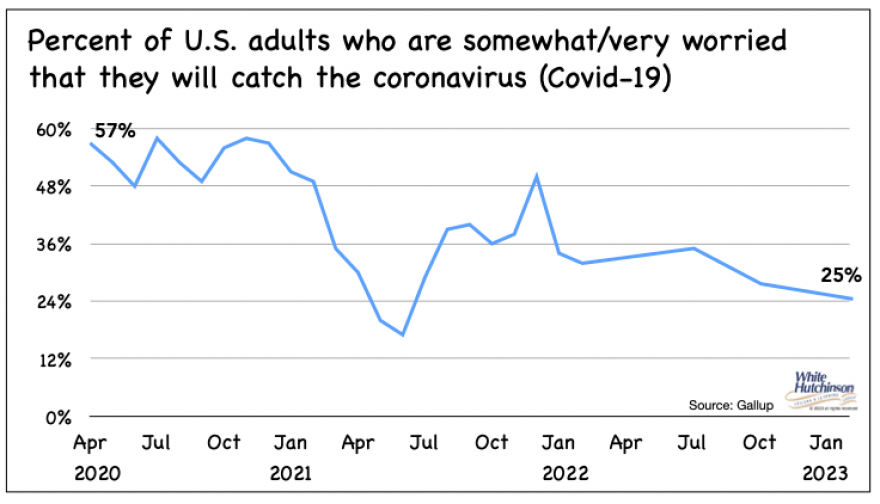
One-half of adults are still entirely or mostly isolating from people outside their households.
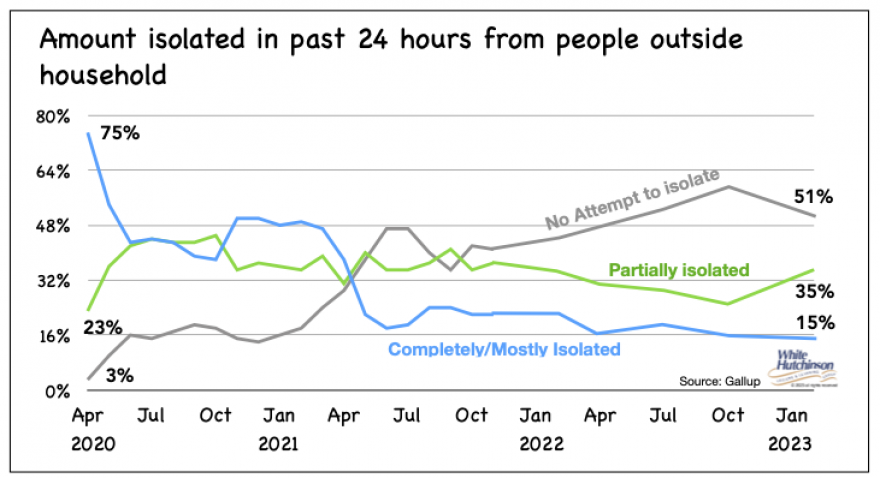
Only one-third of U.S. adults (33%) say their lives are entirely back to normal. Nearly half of adults (47%) don't think pre-pandemic normalcy is attainable, and 20% believe their lives will eventually return to normal.
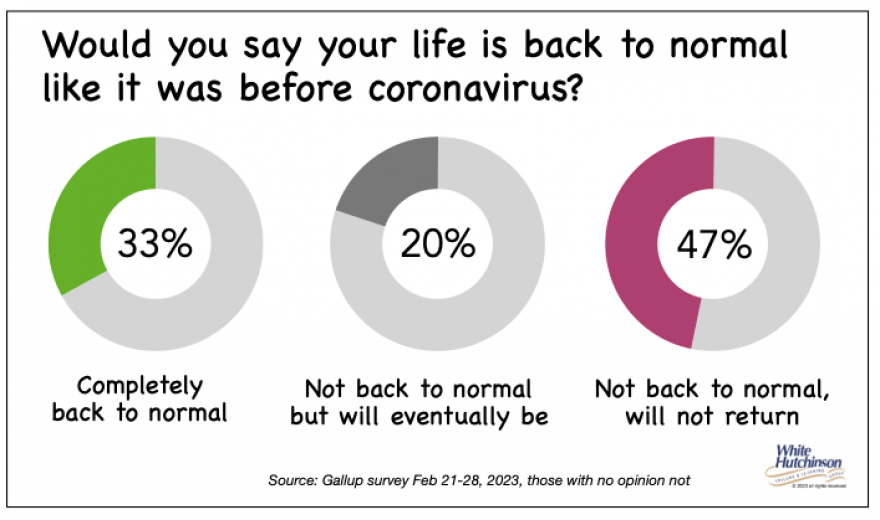
Half of Republicans say their lives are back to normal, 18% say that their lives are not yet normal but eventually will be, and 33% say their lives never will be back to normal. In contrast, 53% of Democrats believe their lives will never return to normal.
The 47% of all adults that don't foresee a return to normalcy may be getting used to a "new normal" that, for some, means occasional mask use, regular Covid-19 vaccines, and avoidance of some situations that may put them at greater risk of infection. Again, there are significant partisan differences.
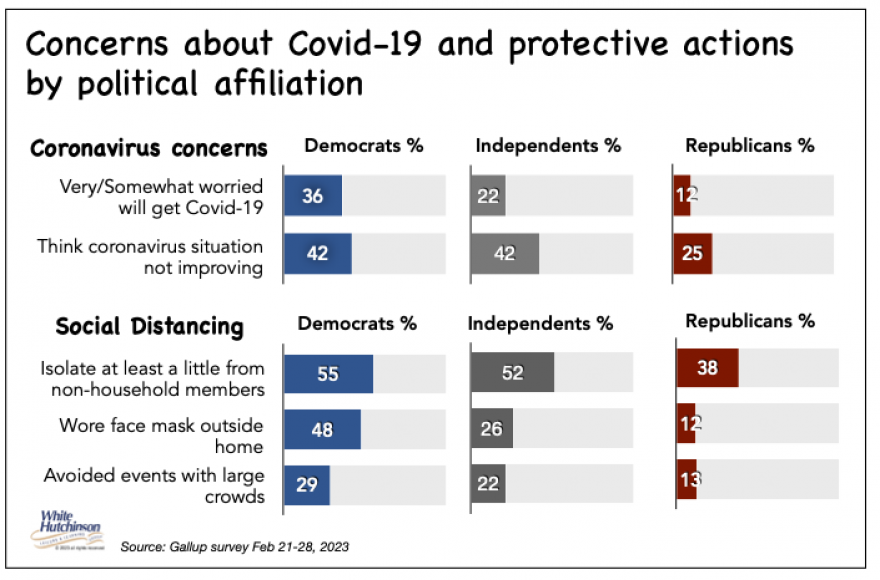
For many Americans, the pandemic has brought a new sense of trade-offs between protecting one's health and participating in social activities as part of daily life.
Pew Research found that many Americans (26%) say keeping healthy became more important during the COVID-19 outbreak, whether that involved following public health precautions or emphasizing a healthy lifestyle.
Regarding socialization, over one-fifth of Americans (21%) have a renewed appreciation for social activities. They report that participating in large gatherings and in-person visits with friends and family is more important to them now than before the pandemic. However, at the same time, about one-third of Americans (35%) said socialization and going out had decreased in importance in priority to them. This means there is a net 14% decrease in the importance of social events and going out among Americans.
Again, there are significant partisan differences in the importance of social gatherings.
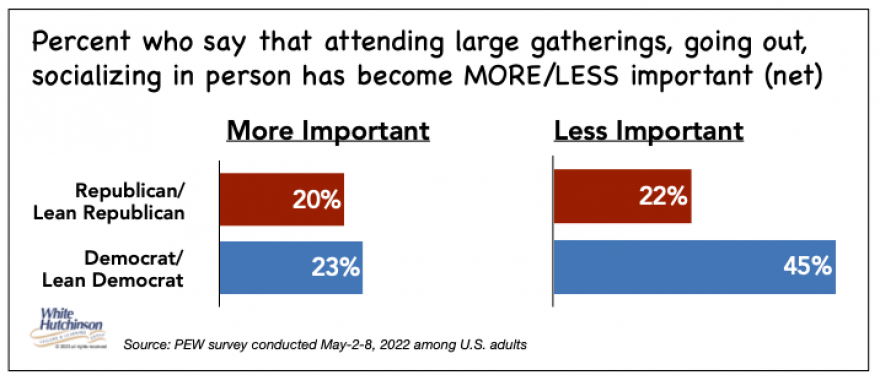
Implications:
This possibly means we have an overall net decline in the importance of going out and social events, possibly due to health concerns. Location-based entertainment needs to be sensitive to this. One thing that might help attract those more reluctant people is maintaining the same high standards of cleanliness and sanitation practiced during the heart of the pandemic.
Subscribe to monthly Leisure eNewsletter
Vol. XXIII, No. 3, March 2023
- Editor's corner
- 2023 forecast for the attractions industry
- Esports isn't living up to its hype
- The weekday daytime leisure economy
- How the young adult market will shift
- Pistachio is a recent flavor trend
- For young adults, owning a VR headset is as rare today as it was in 2018
- Have we returned to pre-pandemic normalcy?
- Long waits reduce revenues and profits
- Store vacancies open opportunities
- Covid-related popularity of pickleball may be faltering
- Why LBE models need to be different today
- Competitive socializing with soccer
- It's all about perceived value, not just price
- Births down not totally bad news
- Announcing Agritourism Today
- Surge pricing comes to bowling


